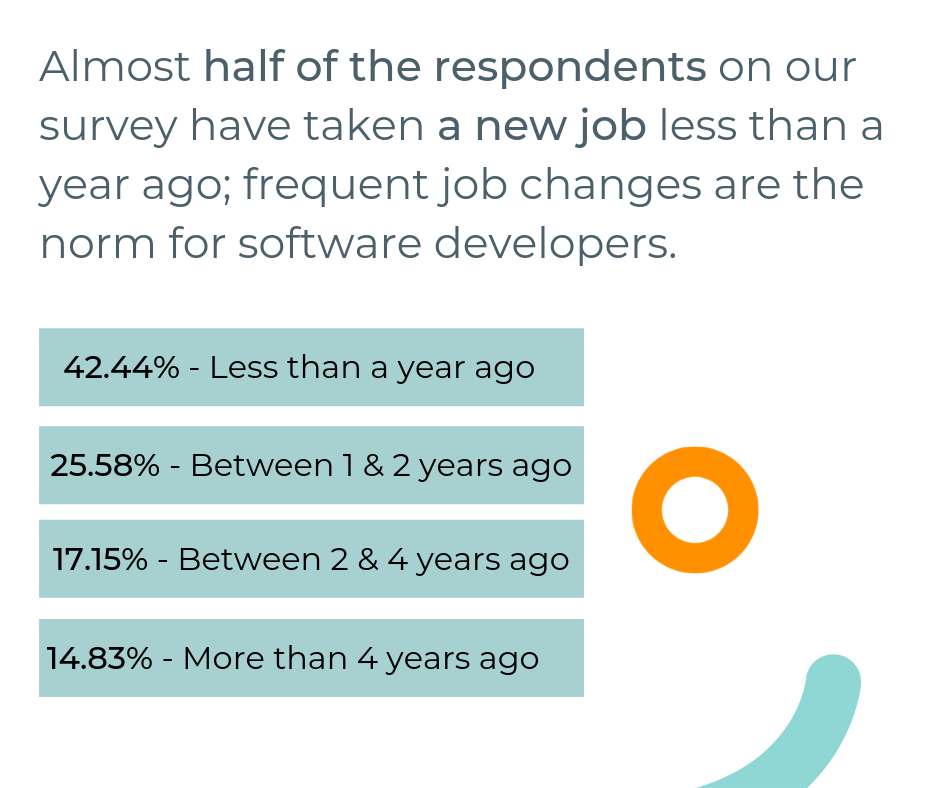Hiring
13 Signs Your Top Talent May Soon Leave

Employee turnover is significant distress for employers everywhere, and for a good reason – it’s stressful, expensive, and time-consuming. Even so, if it comes to it – what needs to be done, needs to be done, right? Right.
But, to try and prevent the damage, and keep top talent in the firm, we investigated behaviours of employees to figure out the most common “tells” of those who are planning to quit.
Signs employee is leaving
1. They No Longer Commit to Long-Term Projects
When an employee decides they are leaving the company, they’ll be less likely to commit to long-term projects. Instead, they are into wrapping up what they’ve currently got, so they don’t have to postpone their (potential) departure date.
2. Their Contribution During Meetings Is Failing
If an employee that used to be highly engaged during meetings becomes less active, it may be an indication they are leaving. Naturally, if their lack of engagement occurs once or twice, it’s not a big deal. You should get worried the moment it becomes their new behavioral pattern and approach to projects.
3. The Talent Is Absent a Lot / Takes Leave of Absence Often
One of the most apparent indicators someone is disengaged is that they suddenly start calling in sick often or taking extended vacations. Their absence from the office may either indicate loss of motivation to come to work or that they are searching for new employment opportunities while being on leave.
4. They Act More Reserved or Quiet
The best way to see if an employee is dissatisfied with their current position is to observe them in social situations. If they are reserved during team buildings, lunch breaks, at the office in everyday interactions, etc. – that’s your cue. This is especially true if the employee was formerly chatty and engaged.
5. They Were Recently Passed Over for a Promotion or Raise
If you have an employee who works hard and gives their all, but they’ve been passed over for a bonus/promotion/raise, you immediately get an unhappy employee. Chances are, they’ll start feeling discouraged, frustrated, and disrespected – and who could blame them! In such a scenario, would you really be surprised to hear they’ve been looking for a new job opportunity, someplace they’d feel valued and appreciated? Of course not.
6. You Notice They Are Less Interested in Advancement
No matter the position, every employee strives for job advancement – if not for the money alone, then for the feeling of self-worth. Ambition is a typical trait in top talents; the moment you see they are no longer fighting the good battle, they may have already gotten an offer elsewhere.
7. They Have Been Stagnated in Their Position for Some Time
Everyone hits a “writer’s block” from time to time, regardless of the industry. It’s perfectly fine and expected, as long as it doesn’t last for too long. If you see your top talent is no longer coming up with solutions like before or that they’re showing less interest in participating, chances are – they’ve lost interest in their current position, altogether. What does this mean for you? They may be leaving sooner than you think.

8. You Notice They Aren’t as Productive as They Used to Be
Has your normally reliable, productive, and super creative employee suddenly become a less dependable version of themselves? Have you talked to them about it? Maybe you should, because they may be serving you a classic case of ‘presenteeism.’
What exactly is ‘presenteeism‘? This is the phenomenon of employees coming to work unenthusiastic, and without being fully present. The syndrome is often registered in employees who are either going through a difficult time personally (divorce, break up, taking care of an ill member of the family, illness, etc.) or are planning to quit.
9. They Are Not Suggesting Innovative Ideas
An employee who’s fully engaged and cares about the projects at hand will be on alert for fresh ideas, helpful tips, quicker solutions, and innovative approaches to problem-solving. This is how they not only show they want to be a valuable member of the organization but also that they genuinely care about making an impact.
The moment your top performer stops bringing up new ideas or suggestions into the mix, you should take it as a huge red flag. Why? Because this is a clear sign they’ve either lost interest in the projects they are working on or your company, overall.
10. They Have Frequent Frictions with Another Employee
No matter how good the pay, conditions or projects, if one’s work relationships are failing, you won’t be having happy employees on your hands. On that note, if you notice a toxic relationship brewing between two employees, you should talk to them separately and try to solve the problem before it’s too late (i.e., one of them (or both!) leaves). If possible, put them in the same room and be the mediator: this should help them solve the problem, and you – keep your top employees from leaving the company.
11. You See Them Delegating Assignments to Others
If your ordinarily hard-working, and enthusiastic employee has suddenly started delegating their work to others, you know something is up. Unless this type of behavior has been encouraged and authorized by management, do know the employee has lost interest in their work. Are they already be sitting interviews elsewhere? Probably.
12. They Make Exact Arrivals and Departures
How to know when a top performer is considering leaving the company? Well, one of the clear pointers is their attitude towards office hours. If you had an employee who would almost always arrive early, and leave late, but now comes in sharp on time and is the first one to leave the office, you should know they no longer care. Another indicator may be that they are showing up chronically late or leaving the office early. Chances are, this person has already got another offer.
13. They Have Started Complaining
A very clear sign that something is off is having your top, happy employee complain about anything and everything at the office – whether it’s the management decisions, policies, another employer, whatever. This type of behavior is usually the final drop, so don’t be surprised if they leave.
Can you do anything to prevent your top performers from leaving the company? You can! Now that you know what the most common signs in the behavior of an unhappy employee are, talk to the employee before it’s too late. Also, make sure you monitor your people’s behaviors more closely so you can be there for them before they decide it’s time to go.
At Omnes, we make sure we schedule regular OOO meetings (One-On-One) with the employees, to hear their complains, suggestions, check up on their progress, and engage with them as much as possible. This is how you not only make sure you potentially prevent your top talent from leaving but also the way to create a bond with people and show appreciation for having them on board!